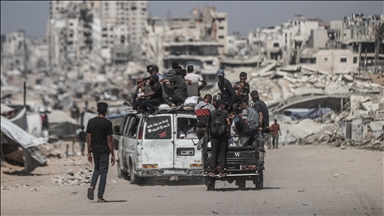
Libya has been thrown into renewed political turmoil after a missile strike targeted the headquarters of the United Nations mission, just days after it announced a roadmap to form a unified government within two months.
The attack has ignited fierce debate among citizens, political observers, and activists over its motives and the future of the country’s fragile reconciliation process.
According to a poll conducted by Libya News 24, public opinion is deeply divided. Many respondents believe the strike was a deliberate attempt to derail efforts to merge the rival administrations led by Abdel Hamid Dbeibah in the west and Osama Hamad in the east.
“What happened represented a desperate attempt to thwart unification efforts and perpetuate chaos in the country,” one observer stated.
Others, however, attribute the incident to widespread dissatisfaction with the UN mission’s performance. Critics argue the mission has failed to advance elections or secure long-term stability since 2011. Mahmoud Amgheib said: “The mission is the reason for its targeting, as it has been obstructing all opportunities for holding elections and achieving stability since 2011.”
Tensions have also been heightened by accusations that Prime Minister Dbeibah is unwilling to relinquish power.
Activist Fatima al-Werfalli claimed that Dbeibah “will not allow a new government to be established,” a stance she believes further complicates the mission’s work.
The missile attack has raised pressing questions about whether the UN process will undergo a serious review or if this episode will be seen as just another passing crisis. For many Libyans, the incident highlights the persistent fractures in the country’s political landscape and the urgent need for both international and domestic actors to restore public trust.
As divisions deepen, the future of Libya’s political transition now hinges on the ability of its leaders to overcome entrenched rivalries and for the UN mission to rebuild credibility among an increasingly sceptical population.



